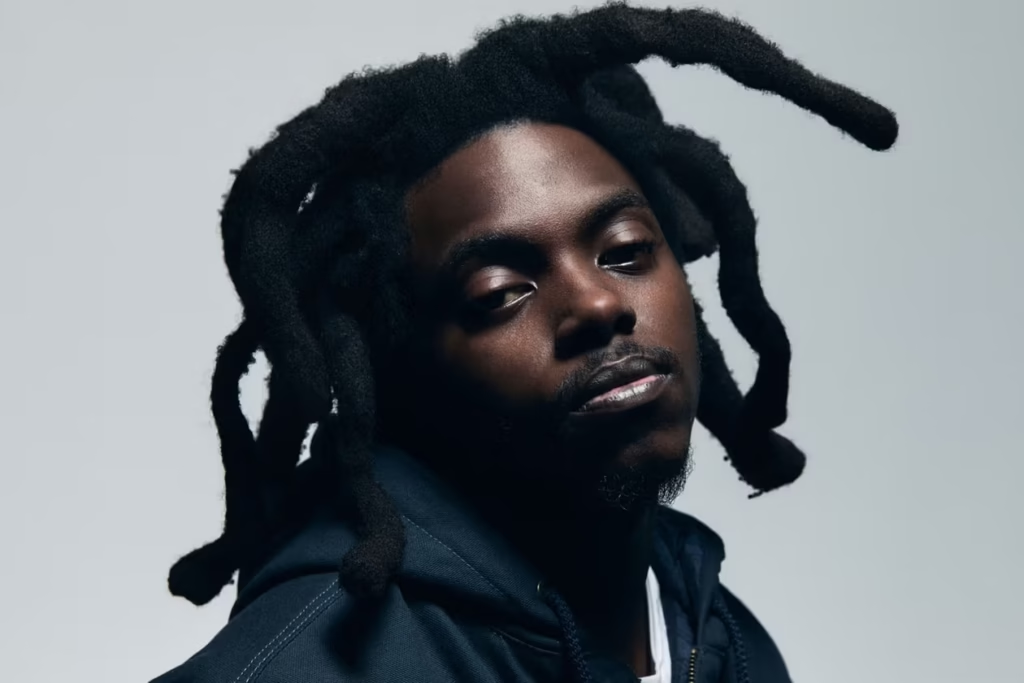
Some songs don’t simply play—they haunt. They echo from somewhere deeper, where rage, reflection, and resistance braid into poetry. Niontay’s “Ain’t Shit” is one of those tracks. It doesn’t ask for your approval. It doesn’t wait for radio validation. It erupts—raw, unapologetic, and fiercely personal. But to understand Ain’t Shit, we need to understand the man behind the mic, the journey that carved his sound, and the complex terrain of trauma, love, betrayal, and redemption that his music continually maps.
In a climate where vulnerability is currency and performative pain saturates much of modern rap, Niontay’s work slices through the noise. His sound is dissonant, minimalist, and purposefully disjointed—because so is his world. Ain’t Shit is both a personal purge and a cultural diagnosis. It’s a track that says: I survived, but survival has a cost.
Who Is Niontay?
Niontay (real name often omitted from public record, by choice) is one of the more enigmatic figures rising from the undercurrents of contemporary underground rap. Born and raised in the U.S. South—specifically Atlanta’s Westside—he came of age in a landscape equally rich in trap culture and impoverished in generational healing. His sonic foundation is built on distorted soul, DIY aesthetics, and the lingering ghost of Southern hip-hop traditions.
What sets Niontay apart is his commitment to the discomfort. While peers often pivot toward melodic hooks and emotionally palatable vulnerability, Niontay’s sound remains sparse and skeletal. His voice is sometimes barely raised above a whisper, and at others, it bursts with a reckless, scorned energy.
His earliest tapes—circulated primarily through Bandcamp, SoundCloud, and Twitter communities—featured home-recorded vocals over eerie, looped production. There were hints of Earl Sweatshirt, hints of MIKE, and the lo-fi pain of artists like Navy Blue and Mavi. But even then, Niontay’s lyrical signatures—fragments, bitterness, fleeting hope—were already being forged.
The Rise: From Internet Obscurity to Cult Following
Niontay first broke through the noise in 2022 with the self-released EP Pain Cradle, which earned modest attention across niche hip-hop blogs and underground music threads on Reddit and RateYourMusic. What listeners found in those early recordings wasn’t polish—it was presence. He was someone with no label backing, no social gimmick, and no elaborate rollout—but with a voice that demanded to be listened to.
2023 saw his collaborative presence expand, linking with artists like Caleb Giles, Akai Solo, and producers from the Backwoodz Studioz orbit. But he remained evasive, difficult to place within any clear lineage. He rejected mainstream tropes while also resisting full experimental abstraction. You could hear a distinct Southern drawl beneath lines referencing academic alienation, intergenerational grief, and crumbling friendships.
Then came Misery Needs Company in 2024—a tape that felt like a psychological diary, equal parts grief-stricken and quietly triumphant. Tracks like “False Light” and “Might Fold” spoke to emotional instability, but also to a kind of persistent endurance. His fanbase, though small, became devout.
“Ain’t Shit”: The Anatomy of a Breakup Track That Isn’t About Just One Person
Released in early 2025, “Ain’t Shit” marked a tonal pivot and emotional climax. On the surface, it’s a breakup track. A lyrical dressing-down of a partner who didn’t show up emotionally, who manipulated vulnerability, who left a scar not quite deep enough to kill—but deep enough to name.
But “Ain’t Shit” isn’t just about her. It’s about every relationship built in the shadows of trauma. About trust eroded before it had the chance to root. About trying to love when you’ve never been shown how. The song’s title may sound like a dismissal, but it’s actually an indictment—of a society that raises boys into men who confuse silence for strength, aggression for intimacy.
Lyric sample:
“I lit your name like incense in my room / thought smoke might carry it far / but it just stayed / like everything you left.”
It’s poetry in the void. A voice echoing across hollowed-out memories, laced with disillusionment and subtle mourning.
Sound Design: Sparse Beats and Emotional Resonance
The production on Ain’t Shit is notably bleak. The beat—likely co-produced by longtime collaborator YUNGMORPHEUS or a similar figure—barely lifts off the ground. There are stretched-out synths, static crackles, and vinyl warps. It feels like the sound of a cold room with a single broken lamp flickering.
There are no hi-hats slicing through the mix. No catchy hooks. No drums at points. Just space. And into that space, Niontay pours restrained venom. The track’s restraint is its violence. The silence after each verse is louder than anything he says.
This sonic minimalism is a deliberate choice—echoing the chopped and screwed ethos of Southern rap, while leaning toward the ambient abstraction found in Armand Hammer or even early Dean Blunt. It dares you to feel something through what’s not there.
Emotional Themes: Shame, Power, and Abandonment
“Ain’t Shit” is framed like a message to an ex-lover. But within it is a broader constellation of emotional themes that Niontay has long worked through:
-
Shame: The song opens with near-muttered admissions, then pivots to bitter accusations. He’s unsure of his role—was he the abuser? the abandoned? both?
-
Power: The chorus is a reclaiming moment. “You ain’t shit, but you knew it / You ain’t love me, you just used it.” It’s accusatory, but self-aware. This isn’t a flex—it’s a wound he keeps revisiting.
-
Abandonment: Beyond the romantic context, the song invokes the feeling of being left behind by society, family, and fate. Niontay is not just speaking to a woman—he’s speaking to absence itself.
Literary and Cultural Resonance: Black Southern Gothic, Emotional Realism, and Rap-as-Memoir
In literary terms, Ain’t Shit reads like a page from a lost novel by Jesmyn Ward or Kiese Laymon—Southern voices who understand the weight of love and violence, often intertwined. Like them, Niontay’s work is not about trauma for trauma’s sake—it’s about trying to name the thing, and hoping that by naming it, you don’t pass it on.
There’s also an undeniable echo of Toni Cade Bambara’s wisdom—that “the role of the artist is to make the revolution irresistible.” In Ain’t Shit, the revolution is emotional truth. Not in grand statements, but in cracked voice notes and deadpan verses. He doesn’t dramatize pain—he testifies to its banality.
Culturally, his work sits in conversation with artists like Noname, Pink Siifu, and Liv.e—artists who understand that sound can be both sanctuary and weapon. And in doing so, he’s helping define what the next generation of underground Black music might look like: not a genre, but a language of grief, survival, and stubborn joy.
Recent Progress: From Cult Hero to Quiet Force
As of mid-2025, Niontay’s rise has been slow but steady. He’s performed at select festivals—Afropunk, Adult Swim Fest, and smaller showcases curated by collectives like Ruby Yacht and Backwoodz. His streaming numbers remain modest, but his critical reception is steadily building.
He’s also begun to produce for others, lending his eerie, lo-fi sound design to up-and-coming poets and emcees. Rumors circulate about a possible full-length album in collaboration with The Alchemist or a joint EP with Navy Blue. But as always, Niontay moves at his own pace.
Crucially, he’s also started engaging more publicly with his mental health journey. In recent interviews, he’s spoken about therapy, fatherhood, and what it means to break cycles. “I was raised by ghosts,” he told one independent zine earlier this year. “Now I’m trying to raise something real.”
Impression
Niontay’s Ain’t Shit isn’t a song for the club. It’s not made for Instagram reels or playlist algorithms. It’s a song that creeps into your chest on a cold night, a song that speaks in the in-between spaces—between love and loss, between blame and clarity, between what we remember and what we regret.
In the end, it’s not really a diss track. It’s an elegy. Not for a relationship—but for the self that believed it could be loved without healing first.
And that’s the brilliance of Niontay: he doesn’t sell survival. He writes through it, even when it’s messy, mean, and unresolved. Especially then.
No comments yet.








